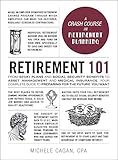Florida Reverse Mortgages
As an Amazon Services LLC Associates Program participant, we earn advertising fees by linking to Amazon, at no extra cost to you.
Who Qualifies for a Reverse Mortgage?
To qualify for a reverse mortgage, one must meet certain requirements primarily based on age, home equity, and financial assessment. First and foremost, the homeowner must be at least 62 years old. This age requirement is crucial because reverse mortgages are designed specifically for seniors seeking to enhance their financial flexibility without increasing monthly expenses. Notably, the home must be the primary residence of the borrower, meaning they cannot use a second home or an investment property.
An essential factor is home equity. Borrowers need to have sufficient equity in their home. Most lenders require that homeowners possess at least 50% equity, and the more equity you have, the higher the reverse mortgage amount. This ensures that the lender has a safety net, as the loan is secured against the value of the home.
Financial assessment also plays a pivotal role. Borrowers must demonstrate the financial ability to handle the costs associated with homeownership. This includes property taxes, homeowner’s insurance, and maintenance costs. A thorough financial evaluation is conducted by the lender to ensure that the borrower can sustain these expenses, which protects both the lender and the homeowner from potential foreclosure.
Additionally, there are no strict credit score requirements for obtaining a reverse mortgage, but having a solid financial standing is beneficial. Debts can be paid off using proceeds from the reverse mortgage, which further alleviates financial burdens.
In summary, qualifying involves being at least 62 years old, possessing significant home equity, being able to cover ongoing homeownership costs, and maintaining a reasonable financial status. If these criteria are met, a reverse mortgage can be a valuable tool to enhance financial freedom for eligible seniors.
Documentary stamp tax is due on a mortgage, lien, or other evidence of indebtedness filed or recorded in Florida. The tax rate is $.35 per $100 (or portion …
Oct 28, 2019 … Martin Neil Baily and Benjamin H. Harris review the reverse mortgage market and how it can impact adequate preparation for retirement.
The unfulfilled promise of reverse mortgages: Can a better market …
… lender. Also called reverse-annuity mortgage or home equity conversion mortgage. Revolving credit = an open-ended account with a limit to how much can be …
Financial Literacy Basics and Vocabulary | University of West Florida
Regulations specific to Florida
Understanding the financial regulations unique to Florida can enhance your financial strategies.
- Sales Tax: Florida has a state sales tax rate of 6%, with local counties able to add up to 2.5% more. This impacts purchasing power, especially for luxury items.
- Property Taxes: Florida’s property tax assessment is based on the market value of properties as of January 1 each year. Knowing this is crucial for homeowners and investors.
- Insurance Regulations: Florida mandates certain coverages for auto and housing insurance. Be aware of the specific insurance requirements to avoid fines.
- Investment Regulations: Florida is a pro-business state, but it has specific regulations on investment firms and securities. Ensure compliance to maintain your investment strategy.
- Consumer Protection Laws: Florida has robust consumer protection laws that offer safeguards for financial transactions. Familiarizing yourself with these laws can protect you from fraud.
A reverse mortgage converts the home's equity into cash payments to the homeowner. You keep title to the home but borrow against its equity. The money received …
How to Protect Yourself: Reverse Mortgages | My Florida Legal
Reverse mortgages are increasing in popularity with seniors … FHA's online, searchable Frequently Asked Questions site is available 24/7 to assist you.
HUD FHA Reverse Mortgage for Seniors (HECM) | HUD.gov / U.S. …
As a Florida homeowner, you can use a reverse mortgageto borrow money using your primary residence as security.
The Basics About Reverse Mortgages in Florida | Senior Lending
Top 20 Reverse Mortgage Lenders in Florida ; Finance of America Reverse LLC (FAR), A+, 20 ; GoodLife Home Loans, A+, 12 ; Guild Mortgage Company (Formerly Cherry …
Florida’s #1 Rated Reverse Mortgage Lender | HUD Approved A+BBB
Market Trends for Reverse Mortgages in Florida
The demand for reverse mortgages in Florida has seen a significant uptick over the past few years, driven by an aging population that is increasingly relying on home equity to fund retirement. With rising living costs and a fluctuating stock market, many seniors are looking for alternative ways to boost their income. Florida’s real estate values have also been on the rise, further enhancing the appeal of reverse mortgages as a financial tool for retirees.
Additionally, the introduction of new regulations has made reverse mortgage products more accessible. Lenders are now offering more flexible options that allow homeowners to tailor their loans to suit individual needs. These innovations include lower fees and more competitive interest rates, making reverse mortgages a viable option for many. Furthermore, financial education campaigns by industry leaders have helped demystify reverse mortgages, reducing the stigma that once surrounded them.
Another trend to observe is the growing acceptance of reverse mortgages as part of a broader financial strategy. Many financial advisors are now recommending these products to clients as a way to leverage home equity without the need to sell their properties. This shift in perception is encouraging more homeowners to consider reverse mortgages for maintaining their financial independence while enjoying their golden years.
The influence of technology cannot be overlooked. Online platforms are simplifying the application process for reverse mortgages, allowing homeowners to receive approvals faster and with less hassle. This digital transformation in the lending space is making it easier for seniors to explore their options and take action.
Lastly, it’s important to note the demographic trends in Florida—states like Florida have one of the highest proportions of retirees in the U.S. As this trend continues, the demand for reverse mortgages is likely to grow. Those looking to tap into their home equity for retirement should certainly consider this financial avenue in the current economic climate.
Costs Associated with Reverse Mortgages
Reverse mortgages come with a specific set of costs that borrowers need to consider before proceeding. **The most prominent cost is the origination fee, which can be up to 2% of the home’s value.** This fee compensates the lender for the administrative tasks involved in processing the loan. Additionally, there are appraisal fees, typically ranging from $300 to $500, which ensure the lender has a proper valuation of the home.
Another significant cost is the mortgage insurance premium (MIP), which protects the lender in case the loan balance exceeds the home’s value. **The upfront MIP is usually 2% of the home’s value, plus an annual premium of 0.5% to 1.25% depending on the loan terms.** This insurance is mandatory for federally insured reverse mortgages, like Home Equity Conversion Mortgages (HECM).
Moreover, closing costs can add another 2% to 5% to the total expenses. These encompass a variety of fees such as title insurance, recording fees, and other miscellaneous charges that can accumulate quickly. **It’s crucial to closely review the Good Faith Estimate provided by the lender for an accurate breakdown of these costs.**
Borrowers must also consider ongoing costs, primarily property taxes, homeowner’s insurance, and maintenance costs. While these may not be direct fees associated with the reverse mortgage, neglecting them can lead to the loss of the home. **Missed payments on these obligations can trigger the loan, forcing repayment.** Always factor in the potential impact of these expenses on overall financial health.
Lastly, it’s important to remember that the loan balance will increase over time as interest accrues on the borrowed amount. **This compounding interest can reduce the amount of equity remaining in the home.** Therefore, understanding the complete financial implications of a reverse mortgage is essential before making any decisions.
Financial assessments required for approval
These assessments are crucial steps to securing financial backing or making sound investments.
- Credit score evaluation: An essential part of financial approval, your credit score often determines loan rates and terms. A score above 700 is generally preferred.
- Income verification: Lenders need to confirm your income sources and stability. Providing pay stubs or tax returns can expedite this process.
- Debt-to-income ratio analysis: This ratio shows how much of your income goes towards debt payments. Ideally, it should be below 36% for favorable financial opportunities.
- Asset evaluation: Lenders frequently evaluate your assets, including savings, investments, and real estate, to assess your overall financial health.
- Budget review: A comprehensive budget helps to illustrate your financial discipline and planning capabilities, which can influence approval outcomes.
Common pitfalls to avoid
Identifying common financial mistakes can save you time, money, and stress.
- Failing to set clear financial goals. Without specific targets, it’s easy to get sidetracked and ineffective in your efforts.
- Ignoring the importance of an emergency fund. Life is unpredictable; having a financial cushion protects your investments and savings.
- Overlooking the impact of fees on investments. Even small fees can erode your returns over time; every percentage point counts.
- Making emotional investment decisions. Acting on fear or excitement can lead to poor choices; stay rational and focused on your strategy.
- Neglecting to review and adjust your financial plan. Regular assessments ensure your strategy remains aligned with changing circumstances.
- Putting all your eggs in one basket. Diversification helps minimize risk; spreading investments across sectors and assets is a must.
How to Choose the Right Lender
Choosing the right lender is critical to unlocking your financial potential. Start by identifying what you need from a loan. Do you require a personal loan, a mortgage, or an investment loan? Each lender specializes in different products and it’s vital to find one aligned with your specific needs.
Next, conduct thorough research on potential lenders. Look beyond big-name banks and consider credit unions and online lenders, as they often provide better rates and lower fees. Don’t just settle for surface-level information; read reviews and seek feedback from current or past clients.
Comparing interest rates is essential. Different lenders offer varying rates, and even a small difference can have a significant long-term impact. Always ask for a breakdown of fees. Hidden fees can turn an attractive rate into a costly burden.
Assess the lender’s customer service standards. If you feel uncomfortable or stressed dealing with a lender during the application process, it’s unlikely they’ll provide better support once the loan is secured. Test their responsiveness through inquiries. Effective communication can save you time and frustration later on.
Consider the lender’s flexibility. For instance, if you think you might want to pay off your loan early, ask about prepayment penalties. While some lenders allow early repayment without extra costs, others might charge hefty fees. Flexibility can be a game changer depending on your financial situation.
Finally, trust your instincts. If everything checks out but you still feel uneasy, it’s okay to keep looking. Choosing a lender is not a one-size-fits-all affair; it requires careful consideration and a sense of personal comfort.
Important factors to consider before applying
These factors are essential in maximizing your financial potential and ensuring that your financial strategy aligns with your goals.
- Understand your financial goals. Being clear about whether you’re saving for retirement, a major purchase, or emergency funds is crucial.
- Assess your risk tolerance. Knowing how much risk you can handle emotionally and financially will guide your investment choices.
- Evaluate current market conditions. Staying updated on trends can inform your approach and timing for investments or savings.
- Review your current financial situation. This includes checking your income, expenses, and debts to understand your starting point.
- Consider the time commitment required. Some financial strategies demand more time and research than others, which can impact your lifestyle.
- Identify any biases that may affect your decisions. Being aware of emotional influences can help you make more rational choices.
- Seek professional advice if needed. Consulting with a financial advisor can clarify options and enhance your strategy.
Impact on Estate Planning and Inheritance
Estate planning is a critical component of financial health and security. It shapes how your assets will be allocated upon your death, influencing your loved ones’ financial future. I’ve seen firsthand how a comprehensive plan can mitigate family disputes and ensure that wealth is transferred smoothly. Without an effective estate plan, your assets may not go where you intended due to intestacy laws—this is not just a legal technicality; it’s a real risk. I advocate for regular reviews of your estate plan. Changes in your personal situation, like marriage, divorce, or the birth of a child, necessitate updates to your will or trust. Furthermore, asset location plays a vital role in inheritance dynamics. Certain assets, such as retirement accounts, have specific rules regarding beneficiaries and taxation. Being strategic about what you leave where can maximize your heirs’ take-home value. Tax implications shouldn’t be overlooked either; estate taxes can erode the wealth meant for your heirs. Implementing strategies such as lifetime gifting can significantly reduce your estate tax burden. Additionally, proper titling of assets and using trusts can provide flexibility and protection against creditors or lawsuits. Education is another key aspect of inheritance. I firmly believe in equipping heirs with financial literacy to handle their potential windfalls. Too often, heirs are caught off guard by the responsibilities accompanying an inheritance. By fostering an understanding of the financial landscape, we’re not just handing them assets but also instilling the capability to manage and grow wealth. Lastly, remember that estate planning isn’t a one-time task; it’s an ongoing process that reflects changes in laws, financial conditions, and personal circumstances. Engaging professionals for guidance can bring clarity and help you address complex issues, ensuring your intentions are honored and upheld. Taking proactive steps today in estate planning can safeguard your legacy for future generations.
The Process of Obtaining a Reverse Mortgage
Obtaining a reverse mortgage might seem complex, but I found that breaking it down into clear steps makes it easier to understand. First, I made sure I met the eligibility requirements. Generally, this means being at least 62 years old, owning your home outright or having a low mortgage balance, and living in the home as your primary residence. **Understanding these basic requirements was crucial.**
Next, I explored the different types of reverse mortgages available: Home Equity Conversion Mortgages (HECM), proprietary reverse mortgages, and single-purpose reverse mortgages. Each type suits different needs and financial situations, so I spent time assessing which would be the best fit for my circumstances. **Choosing the right type can significantly impact my financial well-being.**
The third step involved meeting with a HUD-approved housing counselor. This was an essential part of the process, as they provided invaluable information about the risks and responsibilities that come with a reverse mortgage. I found the counseling session empowering; it deepened my understanding of what a reverse mortgage entails. **I strongly recommend attending this session to grasp what is at stake.**
After exploring my options and gaining knowledge from the counseling session, I began shopping around for lenders. **I learned that rates and terms can vary significantly, so comparing multiple offers is fundamental.** Once I settled on a lender, I submitted my application, which required providing financial and personal information about my income, assets, and liabilities. Documentation needed for the application included proof of income, tax returns, and account statements.
As my application progressed, the lender conducted a home appraisal to determine its current value. This step ultimately impacts the amount I could borrow, so staying updated throughout this process was vital. **I understood that the more my home appreciates, the more potential funding I could access.**
If approved, I received loan documents that detailed the terms of the reverse mortgage, including fees and payment structures. Carefully reviewing these documents ensured I understood my obligations as a borrower. This encouraged me to clarify any gray areas with my lender.
Finally, upon signing the loan documents, the lender disbursed the funds. There are various ways I could receive these, whether as a lump sum, monthly payments, or a credit line. **I chose the option that best aligned with my financial needs and goals.** Keeping track of my spending and remaining aware of the loan terms helped me manage this new aspect of my financial landscape.
Understanding Reverse Mortgages in Florida
Reverse mortgages can be a strategic financial tool, especially for retirees looking to leverage their home equity without selling their property. In Florida, many homeowners aged 62 and older are turning to this option to supplement their retirement income. Unlike traditional mortgages, where you make payments to a lender, a reverse mortgage allows you to receive payments based on the equity you’ve built up in your home.
One of the primary products in this category is the Home Equity Conversion Mortgage (HECM), which is backed by the Federal Housing Administration (FHA). It’s crucial to understand that with a reverse mortgage, the loan amount accrues over time, and you will owe more than the original amount borrowed. This means that your home equity decreases, which could impact your heirs.
Before pursuing a reverse mortgage, thoroughly evaluate your financial situation and consider your long-term plans. Factors such as your health, financial needs, and the housing market can significantly influence whether a reverse mortgage is suitable for you. Reading the fine print and recognizing fees involved is essential, as costs can include mortgage insurance premiums, closing costs, and servicing fees.
Another vital aspect is understanding how reverse mortgages impact other forms of aid, such as Medicaid or Supplemental Security Income (SSI). Contrary to popular belief, receiving funds from a reverse mortgage does not affect your Social Security or Medicare benefits. However, it might impact eligibility for need-based programs.
Lastly, engage with a certified HUD counselor to better navigate the process. A counselor can provide insights into obligations associated with a reverse mortgage, including maintaining your home and staying current on property taxes and insurance. It’s imperative to assess your choices carefully because reverse mortgages are not a one-size-fits-all solution.
Exploring Alternatives to Reverse Mortgages
Many homeowners consider a reverse mortgage as a way to tap into their home equity, but there are several alternatives that might suit your financial situation better. One alternative is a Home Equity Loan or Home Equity Line of Credit (HELOC). These options allow you to borrow against your home’s equity while retaining ownership and enabling a lump-sum payment or ongoing access to credit. Unlike a reverse mortgage, you’ll be required to make monthly payments, but the rates can be more favorable and structured.
Another viable option is downsizing. Selling your current home and purchasing a smaller, less expensive property not only frees up equity but also reduces the burden of upkeep and taxes. This can significantly enhance your financial flexibility and provide a substantial cash influx.
For those seeking immediate cash flow without the burden of debt, consider renting out a portion of your home. This strategy can generate consistent income and allows you to maintain your asset. Alternatively, if you’re open to relocation, investing in a more affordable area can yield financial benefits while increasing your purchasing power.
Another alternative is to explore government assistance programs aimed at seniors. These programs can offer financial support and resources that might alleviate the need for tapping into your home equity at all. For instance, social security benefits, supplemental security income, or certain state programs may provide assistance based on your needs.
Lastly, consider having conversations with financial advisors or retirement planners. Many times, a personalized financial strategy may reveal options that weren’t initially apparent. With careful planning and exploration of these alternatives, you can secure your finances without the complexities and potential downsides associated with reverse mortgages.
Tips for Maximizing Your Reverse Mortgage Benefits
Understand how reverse mortgages work. Knowing the ins and outs, such as how the loan amount is determined and the implications of interest accumulation, is crucial. Being well-informed will empower you to utilize this financial tool more effectively.
Choose a reputable lender. Not all reverse mortgage companies are created alike. Research and select a lender known for transparency, excellent customer service, and favorable terms. This choice can significantly impact your experience and benefits.
Use the funds wisely. It’s common to use reverse mortgage proceeds for essential expenses like healthcare, home improvements, or paying off debts. Prioritizing your spending can enhance your financial stability. Consider using a portion to create an emergency fund for unforeseen costs.
Consider how it affects your estate. A reverse mortgage reduces the equity in your home, potentially impacting your heirs. Make sure to factor this into your overall estate planning. Communication with family members about your choice can prevent misunderstandings later.
Explore government programs. There may be local or federal programs available that can supplement your reverse mortgage benefits. Investigate options that align with your situation; this can provide additional financial support.
Plan for home maintenance. Valid home upkeep ensures that your property maintains its value, which is essential since your home acts as collateral. Regular maintenance can save costs in the long run and ensure smooth property assessments.
Monitor market conditions. Stay updated on property values and market trends. Those insights can help you make informed decisions on timing if you choose to sell or refinance your home.
Consult a financial advisor. Getting expert advice tailored to your situation will help you navigate the complexities of reverse mortgages. A financial advisor can help optimize your financial strategy and ensure you’re leveraging your reverse mortgage to its fullest potential.
Real-Life Success Stories: Reverse Mortgages in Action
Many individuals share their experiences with reverse mortgages as a relief from financial burdens. One memorable case is that of Alice, a 72-year-old widow who found herself struggling to pay bills after her husband’s passing. With a fixed income and rising costs, Alice was concerned about her ability to stay in her home. After consulting with a financial advisor, she opted for a reverse mortgage. This allowed her to unlock the equity in her home, providing her with a monthly income that significantly eased her financial stress. Alice used the funds for essential expenses like healthcare, home repairs, and even making memorable trips with her grandchildren, enabling her to enjoy her retirement.
Another inspiring scenario is that of Tom and Susan, both in their early 70s. After retiring, they noticed their savings depleting faster than anticipated due to inflation and unexpected expenses. They decided to take out a reverse mortgage on their home to bolster their cash flow. With the additional funds, they were able to travel more frequently and support their grandchildren’s education, which had always been important to them.
A common theme I’ve seen in these stories is the powerful impact a reverse mortgage can have on enhancing quality of life. It’s not just about financial relief; it often opens doors to experiences that individuals thought were long gone. These real-life success stories underscore how reverse mortgages can transform financial insecurity into newfound freedom for retirees. As more people explore this option, I am convinced that recognizing its potential will lead to wiser financial strategies for many seniors.
Pros and Cons of Reverse Mortgages
Reverse mortgages can provide significant financial benefits for seniors, particularly those who have substantial equity in their homes. One of the primary advantages is the ability to access cash without selling your home, which can help cover living expenses, healthcare costs, or even fund retirement travels. I appreciate how a reverse mortgage allows homeowners to convert their home equity into tax-free income, providing financial flexibility at a time when one might need it the most.
However, it’s crucial to consider the downsides. The accrued interest on a reverse mortgage can erode the equity in your home, leaving less for your heirs. This reduced inheritance is something many people overlook, and it’s vital to have discussions with family about future plans and expectations. The fees associated with reverse mortgages can also be high, eating into the potential funds available.
Another factor to weigh is that homeowners are still responsible for property taxes, homeowner’s insurance, and maintenance of the home. If these are not kept up, it can lead to foreclosure. Potential borrowers need to undergo counseling to understand the terms fully, which adds an extra layer to the process. This requirement, while beneficial, can feel like another hurdle when you’re already navigating your retirement finances.
Lastly, I think it’s essential to highlight the emotional aspect. Many people feel a connection to their homes and may hesitate to consider a reverse mortgage due to fear of losing their home. This fear can deter individuals from exploring a potentially beneficial financial option. So, understanding both perspectives is key before making such a significant decision.
Comparison of Different Types of Reverse Mortgages
This table compares key features of various reverse mortgage types, helping to evaluate which option best suits individual financial needs:
| Type | Eligibility | Payment Options | Loan Limits | Usage of Funds |
|---|---|---|---|---|
| Home Equity Conversion Mortgage (HECM) | 65+ years, primary residence | Lump sum, monthly payments, or line of credit | Up to FHA limits | Any purpose |
| Proprietary Reverse Mortgages | 65+ years, higher-value homes | Lump sum or monthly payments | Above FHA limits | Any purpose |
| Single-Purpose Reverse Mortgages | Varies by lender, usually 55+ years | Lump sum or specified payments | Lower than HECM | Specified by lender, e.g. home repairs |
| HECM for Purchase (H4P) | 65+ years, primary residence purchase | Single disbursement at closing | Up to FHA limits on property value | Purchase a new home |
| Homestyle Renovation Mortgage | 65+ years, primary residence | Lump sum, financing renovations | Based on home value post-renovation | Renovations |
Types of Reverse Mortgages Available
The reverse mortgage landscape consists of several options, each catering to different needs and circumstances. The primary types of reverse mortgages are:
1. Home Equity Conversion Mortgage (HECM): As the most common type, HECMs are federally insured and offer borrowers the ability to access equity from their primary residence. With this option, you can receive payments in a lump sum, monthly installments, or a line of credit. This flexibility allows homeowners to choose a payment structure that connects with their financial landscape.
2. Proprietary Reverse Mortgages: These are private loans that are not federally insured. They are typically offered by private companies and designed for homeowners with higher-value properties. Since proprietary reverse mortgages often have fewer restrictions than HECMs, they can provide larger loan amounts, which is a significant advantage for some retirees seeking capital.
3. Single-Purpose Reverse Mortgages: These are lesser-known options offered by some state and local government agencies or nonprofit organizations. They allow homeowners to borrow against their home equity, but the funds must be used for a specific purpose, such as home repairs or property taxes. While the limitations might be a drawback, the lower costs associated with this option cannot be ignored.
4. Purchase Reverse Mortgages: A less common but innovative option that allows seniors to purchase a new home using a reverse mortgage. This option can enable seniors looking to downsize or relocate to do so without losing access to their equity, enhancing their retirement lifestyle while maintaining financial stability.
Understanding these distinct types of reverse mortgages empowers homeowners to make choices that align with their financial objectives. Each option offers unique benefits, and determining the right fit requires careful consideration of personal circumstances, including the value of the home, the need for funds, and long-term goals.
Common Misconceptions About Reverse Mortgages
One of the biggest misconceptions about reverse mortgages is that the lender owns your home. This is false. You retain ownership, and as long as you meet the obligations, such as maintaining the property and paying property taxes, you can live in your home without any issue. Another misconception is that reverse mortgages are only for people in financial distress. Many people use them as a strategic financial tool to enhance their retirement income, supplement pensions, or cover unexpected costs. Some believe that using a reverse mortgage will affect their Social Security or Medicare benefits. In fact, as long as you use the funds for eligible expenses, these benefits remain unaffected.
A significant myth is that reverse mortgages are a last resort. They can actually be part of a smart financial strategy, enabling seniors to enjoy their assets without selling their homes. I often hear that reverse mortgages are complicated. While it’s essential to understand the terms, the process is straightforward and can be very beneficial. Many consumers mistakenly believe they will owe more than their home value when it’s sold. However, reverse mortgages are non-recourse loans, meaning you will never owe more than the home’s worth when sold.
There’s also a belief that reverse mortgages are only suitable for those with high home equity. While having significant equity does help, it’s not a prerequisite. Even those with less equity can find value in this option. Lastly, some people think that reverse mortgages are poor financial choices, but when utilized properly, they can significantly enhance financial flexibility in retirement.
What is a reverse mortgage?
A reverse mortgage is a financial product that allows homeowners, typically aged 62 or older, to convert a portion of their home equity into cash. This is done without having to sell the home. Unlike traditional mortgages, where you make monthly payments to the lender, a reverse mortgage pays you. The loan is paid back when you sell the home, move out, or pass away.
Homeowners can use the funds for various purposes, including covering living expenses, medical bills, or home improvements. One of the key benefits is that you don’t have to repay the loan until you leave the home, provided you continue to meet the obligations of the loan. However, it’s crucial to understand that it can reduce the amount of inheritance left to heirs and may incur costs like mortgage insurance.
While reverse mortgages can provide financial relief, they also require careful consideration and understanding of the long-term impacts on your financial health. Consulting a financial advisor is often advisable before proceeding.
How does a reverse mortgage work?
A reverse mortgage allows homeowners, typically aged 62 or older, to convert part of their home equity into cash. Unlike traditional mortgages, the borrower doesn’t make monthly payments. Instead, the loan is paid back when the homeowner sells the home, moves out, or passes away. The loan amount is based on the homeowner’s age, the home’s value, and current interest rates.
The funds received from a reverse mortgage can be used for any purpose, including covering living expenses, health care costs, or home improvements. However, homeowners must remain current on property taxes, homeowner’s insurance, and home maintenance to avoid defaulting on the loan.
These loans can be a lifeline for retirees needing extra cash flow, but they can also reduce the estate value left to heirs. I believe it’s crucial for anyone considering a reverse mortgage to fully understand the terms, costs, and potential effects on their financial future.
What happens if I move out or pass away?
Moving out or passing away can significantly impact financial arrangements. If you move out, any rental agreements or shared housing costs need addressing immediately. You must consider obligations for utilities and lease terms; settle these appropriately to avoid penalties. In cases of passing, ensure your will is updated to reflect asset distribution. Unsettled debts may fall to your estate, so organizing finances ahead of time is critical. Inform beneficiaries of any accounts or policies to avoid unnecessary complications. Discussing plans with family can provide clarity and prevent future stress regarding financial matters.
Will I still own my home with a reverse mortgage?
Yes, you will still own your home with a reverse mortgage. This financial product allows you to access the equity in your home while retaining ownership. The reverse mortgage transforms a portion of your home’s value into cash, which you receive in various forms, such as a lump sum, monthly payments, or a line of credit. Importantly, you remain the homeowner, and the title stays in your name. However, you must continue to meet specific responsibilities, such as paying property taxes, homeowners insurance, and maintaining the home. Failure to meet these obligations can lead to foreclosure. The loan, which typically becomes due when you move out, sell the home, or pass away, is repaid through the sale of the property. Once the mortgage is repaid, any remaining equity in your home can be inherited by your heirs. This means that while you unlock funds from your home’s equity, you still retain control and ownership unless you fail to meet the terms.
Are reverse mortgages safe?
Reverse mortgages come with inherent risks. They can deplete your home equity, leaving you with less financial security in retirement. I believe they can also have implications for your heirs. If you pass away, the loan must be repaid, potentially forcing your family to sell the house. It’s essential to understand the fees involved; they can be significant and impact the amount you ultimately receive. While reverse mortgages can provide immediate cash flow, they often do so at the expense of long-term financial stability. Furthermore, you must continue paying property taxes, insurance, and maintenance costs. If you fail to do so, lenders can foreclose on your home.
In my experience, reverse mortgages should only be considered after thorough research and consultation with a financial advisor. They are not a one-size-fits-all solution and can lead to complicated situations. Evaluate all alternatives carefully before proceeding.
Can I lose my home with a reverse mortgage?
Yes, you can lose your home with a reverse mortgage. A reverse mortgage allows you to tap into your equity, but it comes with specific requirements. If you fail to pay property taxes, homeowner’s insurance, or maintain the home, the lender can initiate foreclosure. This means that despite living in your home, you could ultimately lose it if you don’t meet these conditions. Additionally, if the homeowner moves out for an extended period, often over 12 months, the reverse mortgage may be called due, leading to potential foreclosure. Understanding these risks is crucial; while reverse mortgages offer immediate cash relief, they also come with long-term implications for your home ownership. Always consult a financial advisor to ensure you fully grasp the terms and obligations before proceeding.
Reverse mortgages can unlock equity in your home, providing cash flow during retirement. I appreciate how they allow for payments to be received in various forms, ensuring I have funds available for expenses, healthcare, or leisure. This option offers a unique way to enhance retirement lifestyle while remaining in my home.
Knowing the costs associated with your financial choices is crucial. **It equips you to weigh options accurately** and select investments or savings strategies that align with your goals. **Awareness of hidden fees or expenses can save you from costly mistakes**. Every dollar counts, and understanding how each decision impacts your overall financial health is non-negotiable.
Choosing the right lender is absolutely critical for achieving your financial goals. The terms, rates, and customer service can vary widely among lenders, impacting your overall financial experience. A wrong choice can lead to unnecessary debt and stress. Careful research ensures that you can secure the most favorable conditions for your financial journey.
Market trends significantly affect your home’s value and the mortgage options available to you. In a rising market, property values increase, potentially allowing you to refinance for better terms. Conversely, a declining market can diminish equity and complicate refinancing or selling, limiting your financial flexibility.
Not all reverse mortgages are the same. There are various options with different fees, repayment terms, and features. I urge you to compare products and consult with financial advisors to understand what suits your needs best. Don’t settle for the first option presented; your financial future depends on making the right choice.
Understanding how your financial decisions affect your estate is crucial. **Every financial action today can ripple into future implications, impacting heirs and beneficiaries.** It’s essential to assess how investments, debts, and asset allocations could shift the landscape of your estate, ensuring your legacy is preserved as you intend.
As an Amazon Services LLC Associates Program participant, we earn advertising fees by linking to Amazon, at no extra cost to you.














